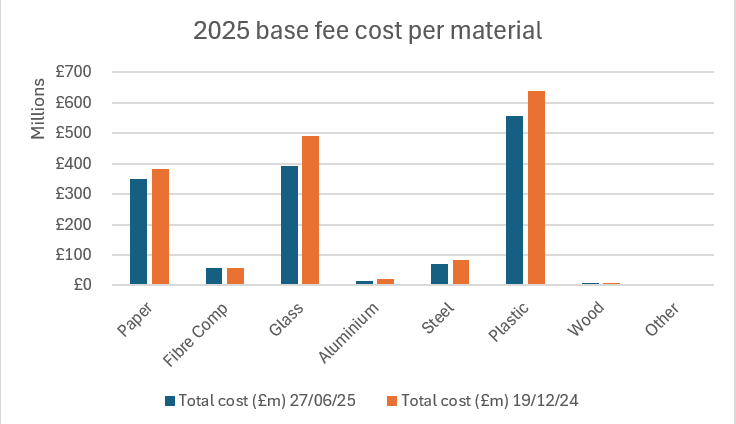The remarks were made by the the department’s permanent secretary, Tamara Finkelstein, when Defra ministers were quizzed by the Public Accounts Committee yesterday (11 September).
The ministers were questioned over why extended producer responsibility, consistent collections and the deposit return scheme have all been delayed, and what steps are being taken to tackle this.
Ms Finkelstein said that while the consistency response is due “very imminently”, the department has had to make a lot of changes to ensure delivery of the programme is possible, with many factors outside of its control.
When asked by the committee’s chair, Dame Meg Hillier, if delays were due to a lack of planning in advance, Ms Finkelstein said: “It is a combination of things. There is no doubt we made a decision during Covid that we need to deal with food security, and other things, and consider the position of local authorities to engage with us.
“We then had a lot of political change, not just in our own department but across government, and then when looking at the date we had in place for EPR [2023], business felt given the delays in information we were giving them, and the impact on prices, we delayed it by a year to give a bit more clarity.
“I would definitely say that when looking at the IPA [Infrastructure and Projects Authority] reports, we were not set up for as much success I would have liked. Hindsight is a good thing, there are things we would have done differently. We have made some changes now to ensure we have the capabilities and capacity to deliver.”
Lessons
When pressed more on what the lessons learned have been, Ms Finkerlstein said Defra now understands the “capacity and capabilities” required to deliver the programme, and said the department “has taken a step up with that”.
She continued that other lessons include the importance of “consistent and open engagement with stakeholders”.
“We were doing a lot of engagement before but have learned to build our own confidence in having interactions and hearing the sorts of things you are being told by stakeholders,” she said.
Running the three aspects of the programme separately was not the best response to have taken
- Sarah Homer, Defra
Changes
Elaborating on some of the changes the department has made to ensure delivery of the programme was Sarah Homer, director general for portfolio delivery at Defra.
Ms Homer said the department has been looking at the governance and resourcing of the programme, and Defra is now “fully resourced” to progress.

She said: “We are looking at our capabilities, capacity and resource models across our portfolios and have brought in 100 new specialists over the past few months.
“I think in terms of the initial set up, we can all agree that running the three aspects of the programme separately was not the best response to have taken…We are now running it as an integrated programme.”
When asked why it has taken five years to realise this, she said the department had been “resetting” parts of the delivery of the policies during the five years, “but we hadn’t matured this prior to last year”.
She added that the procedures in place “will be enough to solve the problems, and we look forward to the next IPA review which I think will be much more positive”.









Subscribe for free